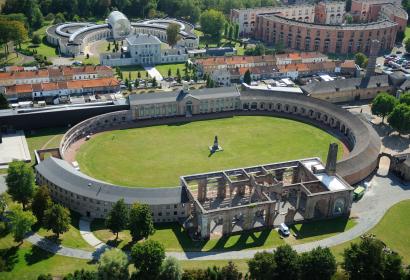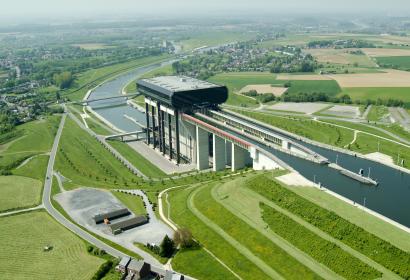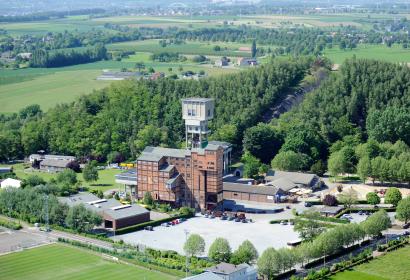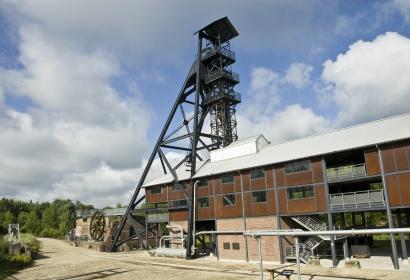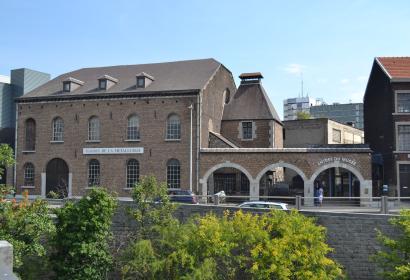Choose your country/language to continue your visit
Keywords
Location
Activity
- (-) Remove Fort, citadel and fortification filter Fort, citadel and fortification
- (-) Remove Industrial heritage filter Industrial heritage
- Abbey (5) Apply Abbey filter
- Adventure park (9) Apply Adventure park filter
- Adventure sports (17) Apply Adventure sports filter
- Air sport / Aerodrome (1) Apply Air sport / Aerodrome filter
- Amusement park (2) Apply Amusement park filter
- An electric scooter ride (1) Apply An electric scooter ride filter
- Animal park/zoo/aquarium (8) Apply Animal park/zoo/aquarium filter
- Architectural heritage (30) Apply Architectural heritage filter
- Boat hire (1) Apply Boat hire filter
- Brewery (2) Apply Brewery filter
- Chocolate maker (1) Apply Chocolate maker filter
- Châteaux (16) Apply Châteaux filter
- Cross-country skiing (1) Apply Cross-country skiing filter
- Cycling and Mountain Biking (9) Apply Cycling and Mountain Biking filter
- Donkey ride (3) Apply Donkey ride filter
- Escape Room (7) Apply Escape Room filter
- Fishing (3) Apply Fishing filter
- Golf club (1) Apply Golf club filter
- Grottoes and caves (7) Apply Grottoes and caves filter
- Guided tour and discovery (5) Apply Guided tour and discovery filter
- Kayak, canoe or rafting (11) Apply Kayak, canoe or rafting filter
- Lake, water body or waterway (5) Apply Lake, water body or waterway filter
- Lasergame & paintball (3) Apply Lasergame & paintball filter
- Local producer (10) Apply Local producer filter
- Mini-Golf (8) Apply Mini-Golf filter
- Minin heap (1) Apply Minin heap filter
- Monument (8) Apply Monument filter
- Motorsports (2) Apply Motorsports filter
- Museum or Interpretation Centre (117) Apply Museum or Interpretation Centre filter
- Park (castles) (8) Apply Park (castles) filter
- Park/garden (12) Apply Park/garden filter
- Provincial estate - Domain (1) Apply Provincial estate - Domain filter
- Racquet sports (2) Apply Racquet sports filter
- Recreational park (15) Apply Recreational park filter
- Religious heritage (6) Apply Religious heritage filter
- River cruises (3) Apply River cruises filter
- Shopping (2) Apply Shopping filter
- Snowshoes (1) Apply Snowshoes filter
- Sport and relaxation (41) Apply Sport and relaxation filter
- Swimming & diving (8) Apply Swimming & diving filter
- Thermal baths (1) Apply Thermal baths filter
- Train/tram/tourist train (8) Apply Train/tram/tourist train filter
- Trekking & hiking (4) Apply Trekking & hiking filter
- Vineyard (3) Apply Vineyard filter
- Water attraction (15) Apply Water attraction filter
- Watersports or sailing (1) Apply Watersports or sailing filter
- Wellness centre (1) Apply Wellness centre filter
- Woodland, nature reserve or natural area (5) Apply Woodland, nature reserve or natural area filter
Labellisation
- Attractions & Tourism (15) Apply Attractions & Tourism filter
- Bienvenue Vélo (8) Apply Bienvenue Vélo filter
- Patrimoine exceptionnel de Wallonie (1) Apply Patrimoine exceptionnel de Wallonie filter
- Travellers with specific needs (4) Apply Travellers with specific needs filter
- UNESCO (5) Apply UNESCO filter
Name
17 results
- Le CID au Grand-Hornu | Centre d'Innovation et de Design© SPW - Patrimoine - photo Guy FocantHornu
Le CID au Grand-Hornu | Centre d'Innovation et de Design
Take a former coal mine, get it listed by UNESCO as World Heritage and you get the CID of the Grand Hornu: an innovation and design centre, featuring temporary exhibitions on design, applied art and contemporary art. - The Keramis Ceramic Centre
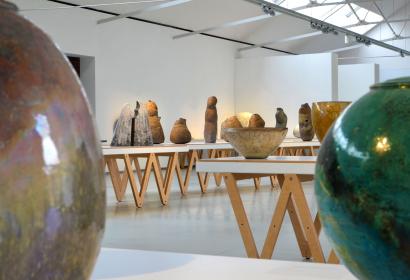 © KeramisLa Louvière
© KeramisLa LouvièreThe Keramis Ceramic Centre
Discover the new Centre Keramis de la Louvière. A museum dedicated to ceramics and earthenware installed on the site of the factory Royal Boch .... - The Strépy-Thieu funicular lift, a river gem in Wallonia© WBT - S. WittenbolLa Louvière
The Strépy-Thieu funicular lift, a river gem in Wallonia
Located on the Canal du Centre, the Strépy-Thieu funicular lift is the largest boat lift and its 73.15 metres incline is the largest in the world. An absolute must see if you are travelling through the Hainaut region. - The Eau d'Heure lakes and the Plate Taille Visitor Centre
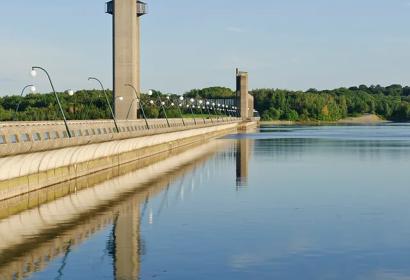 © Crocodile RougeBoussu-lez-Walcourt
© Crocodile RougeBoussu-lez-WalcourtThe Eau d'Heure lakes and the Plate Taille Visitor Centre
Enjoy a guided tour of the biggest dam in Belgium and its skywalk, offering a unique 107 m high panorama. - Blegny-Mine: an iconic mining site in the province of Liège© SPW SGO4 - G. FocantBlegny
Blegny-Mine: an iconic mining site in the province of Liège
Located east of Liège, this site is one of the four authentic coal mines left in Europe, all listed by UNESCO. Put your jacket and helmet on: the guided tour will take you through galleries 30 to 60 m underground! - Bois-du-Luc: a UNESCO mining site, witness of the Industrial Revolution
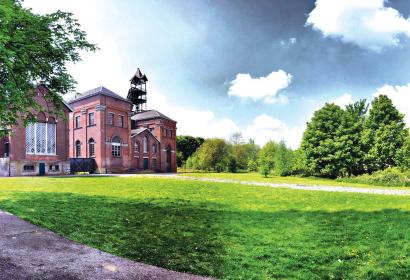 © Bernard VanroyHoudeng-Aimeries
© Bernard VanroyHoudeng-AimeriesBois-du-Luc: a UNESCO mining site, witness of the Industrial Revolution
The Bois-du-Luc mining site was one of the main witnesses of the industrial revolution in Wallonia. This extraordinary historical heritage, wonderfully well preserved, is protected by UNESCO. - The Citadel of Namur and its fascinating network of underground galleries
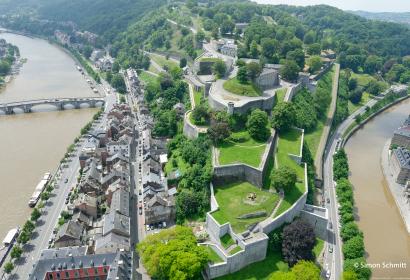 © Simon SchmittNamur
© Simon SchmittNamurThe Citadel of Namur and its fascinating network of underground galleries
Upon inspection of the Citadel, Napoleon labelled it as “Europe’s Termite Mound” due to its extensive network of underground passages. Discover 500m of restored passages with an immersive-guided tour that will take you to the heart of the history of the Citadel’s entrails, through sound and light. - SPARKOH!: a scientific adventures park (Frameries)
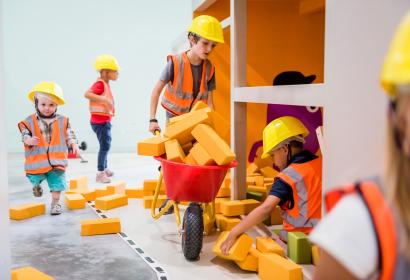 © Hyacinthe ArthursFrameries
© Hyacinthe ArthursFrameriesSPARKOH!: a scientific adventures park (Frameries)
SPARKOH! is a unique attraction featuring interactive, family-friendly exhibitions to approach science in a different way. - The Lobbes-Thuin historic tramway
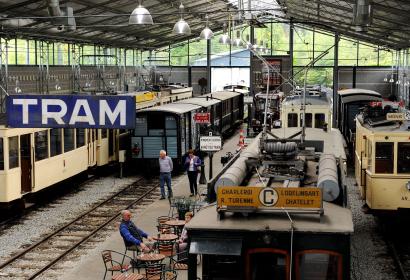 © Jean-Claude AndrieuThuin
© Jean-Claude AndrieuThuinThe Lobbes-Thuin historic tramway
The Vicinal Historic Tramway Discovery Centre in Lobbes-Thuin is a museum dedicated solely to trams of all kinds: steam, electric, diesel. - Eben-Emael fort: a WW2 memorial site
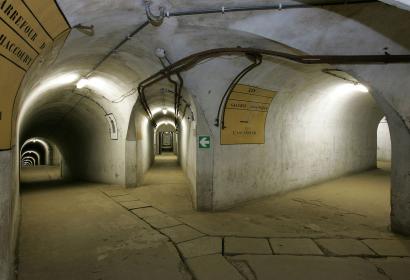 © A.S.B.L. Fort Eben-EmaelEben-Emael
© A.S.B.L. Fort Eben-EmaelEben-EmaelEben-Emael fort: a WW2 memorial site
Back in 1940, the main obstacle facing the northern prong of the German attack on Belgium was the city of Liège, protected by a newly upgraded ring of 12 forts. The most formidable of these was Eben-Emael, 20 miles north-east of the city, which was designed to prevent a crossing of the River Meuse and the Albert Canal. - The Bois du Cazier and its heaps: a remarkable memorial site© WBT - JP RemyCharleroi
The Bois du Cazier and its heaps: a remarkable memorial site
Listed by UNESCO as one of the major mining sites in Wallonia, the Bois du Cazier is a particularly touching memorial. Located South of Charleroi, this preserved industrial heritage site stretches along 26 hectares. A remarkable orientation trail has been designed to present its 3 heaps and architectural features. - Maison de la Métallurgie et de l'Industrie de Liège© MMILLiège
Maison de la Métallurgie et de l'Industrie de Liège
Discover the Belgian metallurgy and industrial cultural heritage in a former factory, the Maison de la Métallurgie et de l'Industrie in Liège. - The Vieille Montagne museum in La Calamine
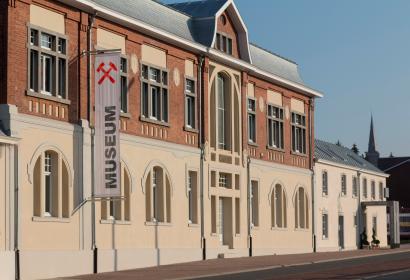 © Martin RoehnKelmis
© Martin RoehnKelmisThe Vieille Montagne museum in La Calamine
Nestled in a stunning Art Deco building, the Musée Vieille Montagne focuses on the political, industrial and social history of the Moresnet-Neutre region, known for mining calamine (a mix of zinc carbonate and ferric oxide). - The Recht slate quarry
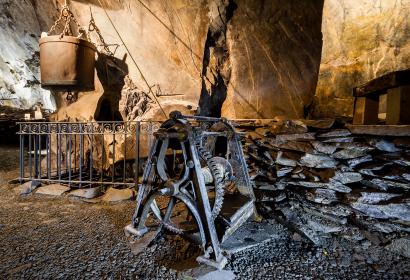 © VoG Schieferstollen Recht - Xavier FerRecht
© VoG Schieferstollen Recht - Xavier FerRechtThe Recht slate quarry
In this spectacular quarry, visitors can admire the impressively high rooms where the local Recht slate was mined. The 800 m long trail includes an observation bridge offering a memorable panorama on the site. - MAC's: the Museum of Contemporary Arts of the Wallonia-Brussels Federation
 © WBT - Sébastien RobertyHornu
© WBT - Sébastien RobertyHornuMAC's: the Museum of Contemporary Arts of the Wallonia-Brussels Federation
The MAC's, or Museum of Contemporary Arts of the Wallonia-Brussels Federation, welcomes you to the UNESCO-listed Grand-Hornu mining site. - MAGMA:marble museum in Sivry-Rance
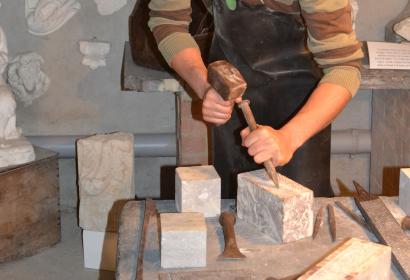 © Musée du marbreRance
© Musée du marbreRanceMAGMA:marble museum in Sivry-Rance
Discover the fascinating history of marble in this recently renovated museum, located in Rance. - Musée de la rubanerie in Comines
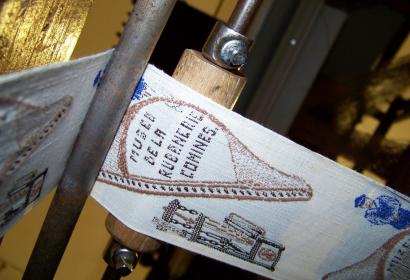 © MRc - O. ClynckemaillieComines
© MRc - O. ClynckemaillieCominesMusée de la rubanerie in Comines
The Museum of Ribbon, in the town of Comines (Belgium), traces the history of the ribbon industry since the 13th century.

